How to Effectively Inform Ourselves in Today’s World?

In an age where information flows freely at the click of a button, staying informed can feel overwhelming. With countless news sources, social media platforms, and opinions available, navigating this landscape wisely is essential. Here’s a comprehensive guide on how to inform yourself effectively while safeguarding against misinformation.
1. Diversify Your Sources
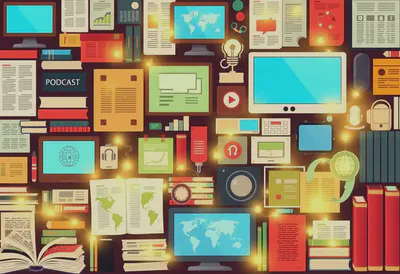
One of the best ways to gain a well-rounded view of any topic is to rely on multiple sources of information. Consider various types of sources, such as:
- Mainstream News Outlets: Established newspapers and television networks often adhere to editorial standards and fact-checking processes.
- Independent Media: Smaller outlets can provide unique perspectives and cover stories that larger organizations may overlook.
- Academic Journals: For in-depth research and data, refer to peer-reviewed journals and articles from credible institutions.
- Nonprofit Organizations: Many nonprofits focus on specific issues and offer valuable insights backed by research.
- Local News Sources: Local outlets provide context for national news and cover issues that directly impact communities.
2. Check the Credibility of Sources
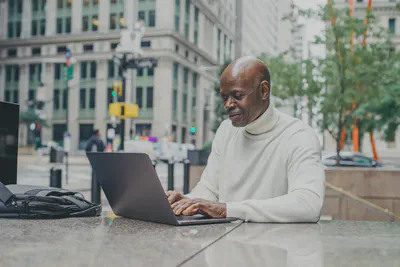
Not all information is created equal. Before accepting information as fact, consider the following:
- Author Expertise: Look for articles written by experts in the field. Check their credentials and experience using platforms like LinkedIn.
- Publication Date: Ensure the information is current; outdated data can lead to misunderstandings.
- Citations and References: Reliable articles often cite their sources. Check these references to assess the validity of the information.
3. Be Aware of Bias
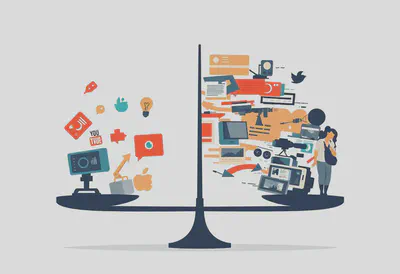
Every source has its own perspective and bias. Here’s how to recognize and account for bias:
- Read Critically: Pay attention to language and tone; emotional language may indicate bias.
- Seek Different Viewpoints: Challenge your beliefs by exploring sources that present opposing viewpoints.
- Fact-Checking Websites: Use resources like Snopes, FactCheck.org, and PolitiFact to verify claims and check for misinformation.
Understanding how bias can affect interpretation is crucial-acknowledging that different perspectives shape the way information is presented helps us become more discerning consumers of news.
4. Engage with Social Media Wisely
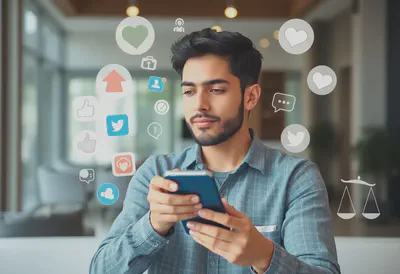
Social media is a double-edged sword. While it can spread awareness quickly, it can also perpetuate misinformation. To use social media effectively:
- Follow Credible Accounts: Choose to follow journalists, experts, and organizations known for their integrity.
- Limit Your Consumption: Be mindful of how much time you spend on social media, as excessive exposure can lead to information overload.
- Verify Before Sharing: Take a moment to fact-check information before sharing to prevent spreading falsehoods.
- Adjust Privacy Settings: Be aware of your privacy settings and avoid algorithms that reinforce echo chambers, limiting your exposure to diverse viewpoints.
5. Stay Curious and Open-Minded

A curious mind is a powerful tool for learning. Approach information with an open mind:
- Ask Questions: Don’t hesitate to question information that seems off. Consider who benefits from this information and what the underlying agenda may be.
- Explore New Topics: Delve into subjects you’re unfamiliar with. Expanding your knowledge base can lead to a better understanding of current events.
- Participate in Discussions: Engage in constructive debates on platforms like Reddit or specialized forums to refine your understanding and expose yourself to different perspectives.
6. Be Cautious of Overreliance on Social Media and AI
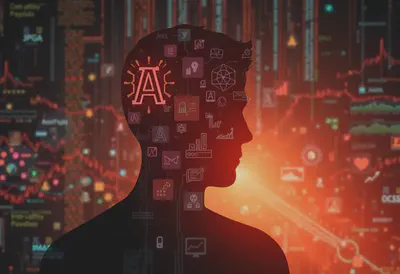
While social media and AI tools can provide quick access to information, it’s crucial to recognize the potential dangers of overreliance on these platforms. They can reinforce existing biases and create echo chambers, limiting our exposure to diverse viewpoints. Just as an ant will not overstep the circle drawn around it until it accidentally crosses the line, we can become confined by our own mental barriers. Therefore, it is essential to step outside these confines and verify facts independently.
A thought provoking experiment:

In the context of this article, the circle drawn around the ant represents our initial mental barriers or biases - constraints that limit our understanding or exploration. Just as the ant is confined within the circle at first, we may feel trapped within our preconceived notions or echo chambers created by overreliance on social media and AI tools. However, the key insight is that these boundaries are not necessarily absolute; the ant “discovers” that the boundary is not oversteppable and begins to test its limits, leading to more escapes and broader exploration.
Similarly, in the realm of information and knowledge, the initial boundaries -whether they are assumptions, biases, or limited perspectives- can be challenged. The more we verify facts independently and seek diverse viewpoints, the more we realize that our mental “circles” are not fixed. This process encourages us to push beyond our mental boundaries, much like the ant learns to escape additional circles, fostering greater understanding and critical thinking.
Thus, the analogy underscores the importance of actively challenging our mental confines, recognizing their initial limitations, and engaging in exploration beyond them to achieve a more nuanced and open-minded perspective.
We must not relinquish our responsibility to verify facts for ourselves. In a world saturated with information, acknowledging that we cannot know all the facts is paramount. Taking ownership of our understanding empowers us to engage with information critically and thoughtfully. For instance, comparing insights from the Bible with the latest scientific findings can foster a more nuanced understanding of the world. This openness to different viewpoints encourages us to think creatively and break free from rigid thought patterns and mental barriers like in 9-Dots Exercise by Jon Kabat-Zinn.

7. Protect Yourself from Misinformation
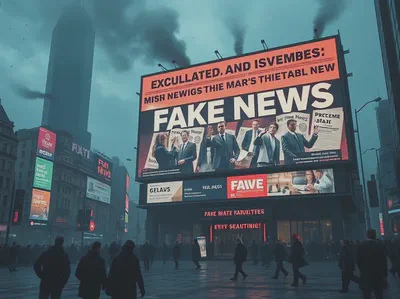
In today’s information landscape, it’s vital to be aware of misinformation, including misleading news, false reports, and conspiracy theories. The internet facilitates the rapid spread of false information, making it easy to inadvertently share inaccurate news. To combat this:
- Do Not Believe Everything You See or Hear: Be cautious of sensational or emotionally charged content. Assess whether the information is legitimate or merely a meme or altered media.
- Evaluate the Source and Content: Investigate the credibility of the source and the accuracy of the information. Look for verifiable facts and strong evidence.
- Be Guided by Facts, Not Personal Preferences: Recognize that personal biases can cloud judgment. Seek information that challenges your beliefs rather than reinforces them.
- Stop the Spread of Misinformation: Before sharing information, ask yourself if you can verify its accuracy. Taking time to evaluate what you share can significantly reduce the likelihood of spreading misinformation.
To emphasize the importance of vigilance against misinformation, consider how viral hoaxes like the ‘I-SNOOP: Look out for this orange dot on your iPhone - someone is listening in’ and urban legends such as the ‘Supervolcano is threatening Europe’ not only spread rapidly online but also demonstrate the real-world consequences of believing and sharing unfounded claims.
Further Resources for Fact-Checking (for Hungary):
- DEBUNKING FAKE NEWS Fact-checking in the world and Hungary
- Ténykérdés - How We Work
- Ténykérdés - Fact-Checking List
- Lakmusz - Fact-Checking Resource
- Lakmusz - Frequently Asked Questions
- Urban Legends - What is This Site?
Conclusion
In our fast-paced world, staying well-informed demands both effort and discernment. By diversifying your sources, verifying credibility, recognizing bias, using social media thoughtfully, cultivating curiosity, and prioritizing self-care, you can navigate the overwhelming sea of information more effectively. Remember, being informed is not just about the quantity of knowledge, but also about its quality and depth.
As we continue to learn, it’s essential to acknowledge that our understanding is always evolving. What we once accepted as facts may change as we encounter new information. Embracing this humility allows us to grow and adapt in our pursuit of truth. Stay proactive in your quest for knowledge, and remain open to the possibilities that new insights may bring.
Disclaimer:
The information provided in this article, “How to Effectively Inform Ourselves in Today’s World,” is intended for general informational purposes only and should not be considered professional advice. The views and opinions expressed herein are those of the author, Hunor Becsi, and do not necessarily reflect the official stance of any organization or entity. While every effort has been made to ensure the accuracy and reliability of the information presented, readers are encouraged to conduct their own research and verify facts independently. The author and publisher disclaim any liability for any errors, omissions, or consequences arising from the use of this information. Furthermore, the resources and links provided are for convenience and do not imply endorsement of any specific websites or organizations. Always exercise critical thinking and judgment when consuming information from any source.